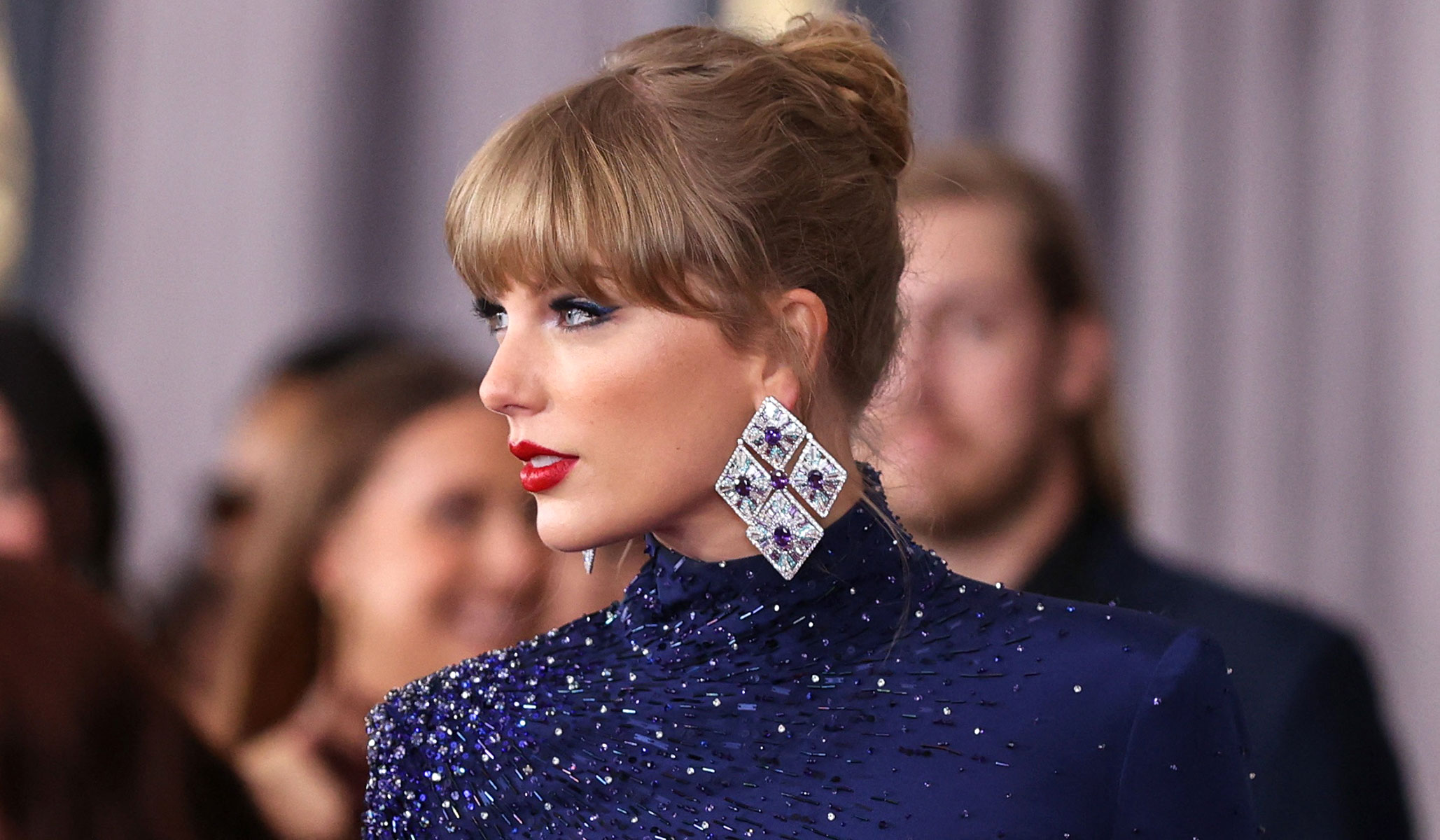


The closest to negative criticism that pop star Taylor Swift ever received came in June 2019 when she released “You Need to Calm Down,” a song displaying her crafty mix of adolescent sensibility and political correctness. Her fans — Swifties — couldn’t decide whether she was preempting Gay Pride Month or appropriating it despotically. Swift doubled down on her exploitation/appropriation, performing the song again at a Chicago concert during her “Eras” tour timed for this year’s Pride events. It revealed her noxious but effective career strategies.
Not just a popstar with a catchy knack like Dua Lipa or Bruno Mars, ex–country singer Swift is undeniably political, a candidate for public worship with all the prevarication, duplicitousnes, egotism, and menace that such a role implies. In her Chicago stump speech, she advocated,
This is a safe space for you. This is a celebratory space for you. . . .There have been so many pieces of harmful pieces of legislation that have put people in the LGBT community at risk. . . . That’s why I’m always posting, “This is when the midterms are. This is when those important key primaries are.”
And the media dutifully report her instigations. Veteran proto-feminist scribe Robert Christgau sized up Swift as “America’s Ingenue” while his peers treat her as a favored daughter or a phenomenon of artistic significance no less than the Beatles or Michael Jackson. This bizarre heroizing typifies mainstream media’s habitual partisanship.
Fact is, at 5 feet, 11 inches, Swift joins the lineup of the criminal cultural avatars Oprah Winfrey and Barack Obama, who personify the envious ambition of the masses, earning recognition through dubious accomplishment. Her stilted manner recalls a high-school valedictorian with RBF. That’s why “You Need to Calm Down” is not personal expression, but a con job.
This song-as-rant, in Swift’s usual bubble-gum style, works especially well on adolescents who haven’t learned to distinguish thoughts from enthusiasms. Swift appeals to the teenage need for identification. She’s coming for America’s daughters, and this makes her songs specious and dangerous.
Even The Atlantic complained that “queer folks have a right to feel queasy from the song,” charging that “You Need to Calm Down” “hijacks queerness.” Swift (whom one pop critic called “lyrically deft”) rarely lets her pop skills get out of control, but the song’s “gown/crown/loud” rhymes blatantly expropriate drag-queen lingo. A shout-out to gay media (“Are you mad / when you can be GLAAD? / ’Cause shade never made anybody less gay”) hints at hidden animosity and veiled homophobia — signifying a diva’s haughty bluff and resentment. She can’t shake off that part of her act; it’s her most human reflex. Swifties took the lyric “Are you okay?” to express concern because they didn’t catch on to her sarcasm.
But 33-year-old Swift also hijacks adolescence, the proving ground of pop-music fanaticism. The bulk of her catalogue is a series of revenge songs, teaching girls how to think — not for themselves, but about only themselves. Boasting of serial monogamy yet always smarting over bad breakups, she uses boyfriends “as foils,” one young male filmmaker objected.
On “I Forgot That You Existed,” from Lover, the lyrics are just mean: “It isn’t love, it isn’t hate; it’s just indifference.” Her self-pleased chuckling “I thought that it would kill me, but it didn’t” lacks Billie Holiday’s noble masochism, noble because it was loving, stronger than it was painful, and sung with great, beautiful artistry that brought both women and men to heel — and maybe to heal.
Nothing Swift has written comes close to Holiday’s wounded female experience or the great quizzical love lyrics of Bryan Ferry’s “A Really Good Time,” Morrissey’s “This Charming Man,” or Joni Mitchell’s “Car on a Hill.” Instead, her bratty voice fosters misandry. On “(I’d be) The Man” she snipes, “Like Leo in St. Tropez,” showing the pettiness of a DiCaprio groupie. Then she humble-brags feminist spite: “I’d be a fearless leader / I’d be an alpha type.” But the drag-king routine in Swift’s self-directed video for that song (dialogue voiced by Dwayne Johnson) is pointless since, for her minions, she is already an alpha type.
As one of the elites, Swift may be the obvious icon for the TikTok era, attracting Swifties who are media-addled victims of her demagoguery (a fan/celebrity dynamic that amounts to systemic peonage). But if Taylor Swift is an ideal, the state of modern girlhood is in trouble.
Is it coincidence that Swift’s will-to-power (2008 to the present) coincided with Hillary Clinton’s biggest ambition? Or that Kanye West was once her Obama-opponent (eventually conquered around the same time that #MeToo put the kibosh on Harvey Weinstein and Bill Cosby)? “Closure,” from the album Evermore, repeats “I don’t need your closure” in a voice like angry-wifey Hillary — if Hillary were ever candid or honest. Disingenuousness is Swift’s trademark.
Manipulation is a Millennial ploy central to Swift’s self-conscious media mania (re-recording her albums for contractual ownership, “directing” her music videos in the same anomic way that actress Olivia Wilde delegates feature films). It recalls how Spice Girls mania manipulated ’90s feminists who you’d think were mature — but they harbored age-old regrets. Plus, there’s always residual hostility within progressives, and Swift plays to that defensiveness, reigniting teenage insecurity and hostility for those adults in the media who make sure their princess is always prominently promoted.
